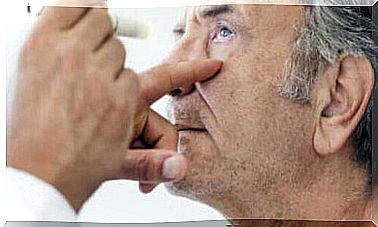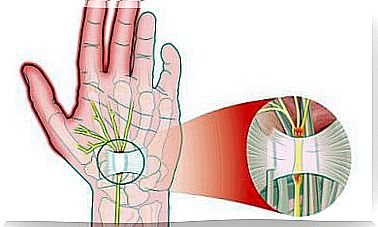The Relationship Between Coffee And Heart Attacks

There is a link between coffee and heart attacks, but scientific studies on the subject differ. Some researchers think that drinking coffee improves cardiovascular function, but others don’t.
Coffee occupies an important place among the beverages in the world. People drink it almost all over the world and for a number of people it is a habit that goes beyond their morning breakfast. Coffee is often about socializing, an excuse to meet and talk.
Its effect on health is therefore important for all of us. There are so many consumers who should improve their coffee drinking habits if there is a real risk to their well-being.
In general, coffee has a bad name for its association between caffeine and cardiovascular risk. It is also very common for patients who have had a heart attack to stop drinking coffee alone and not follow medical instructions.
It used to be an established fact that caffeine was the substance to study when it came to consuming coffee and heart attacks. It made them realize that many other drinks also contain it, such as certain stimulant drinks.
However, a Swedish scientific study has found that coffee is only a problem depending on how we consume it and not necessarily because of the caffeine.
How we drink coffee affects heart attack risk

A study group at Göteborgs Universitet (University of Gothenburg) investigated the differences between the cardiac effects of different forms of coffee preparation. It’s interesting how each modality affects the mortality of the groups they studied.
According to this study, the filter is the most important factor in the relationship between coffee preparation and heart attacks. Filtering the coffee keeps the substances that lead to unwanted effects away from the body.
These substances are able to increase the LDL cholesterol level and increase and change the heart rate. All three are bad for the heart and arteries. It’s even worse if the person has other health problems, such as obesity or a higher-risk pathology, such as diabetes.
According to researchers in Sweden , unfiltered coffee contains 30 times more toxins than filtered coffee. This difference can therefore be significant in terms of health.
Studies with opposite results
Contrary to the results of the Swedish researchers, a number of meta-analyses advocate the use of coffee as a heart protector, rather than considering it a risk factor. In fact , it was part of the heart health recommendations of the past decade.
A meta-analysis published in the Journal of the American College of Cardiology found no association between coffee consumption and heart attacks. On the contrary, the effects that emerged from the study showed benefits.
The subjects analyzed who drank up to 4 cups of coffee daily had an 18% lower risk of dying earlier. In conclusion, regular and moderate coffee drinkers were more likely to have a healthier life.
The explanation could lie in the antioxidants in coffee, which we ingest along with the caffeine. These substances are important for cellular aging because they block the internal toxins that humans produce from the simple fact that they are alive.
Cortisol problem – coffee consumption and heart attacks

Caffeine increases the production of cortisol (the stress hormone) in the body because people release it to boost their immune response and stay alert.
The heart rate increases when there is too much cortisol. So the blood pressure rises slightly. Neither situation is desirable in a heart patient, including someone at high cardiovascular risk.
Regular drinkers get used to this slightly elevated cortisol level. The increase in blood pressure is not significant and does not appear to increase heart pumping. Anyway, people who think coffee is bad for their health avoid it for this reason.
It’s not clear that coffee consumption due to cortisol leads to heart attacks, but research is ongoing. For example, controlling the levels of this hormone is one of the therapeutic treatments for high blood pressure.
Should we drink coffee?
In short, we can drink coffee if we want to. As with anything in life, moderation is key to avoiding its potential adverse effects.
It is important to understand that drinking coffee alone does not lead to heart attacks. Other factors such as diet and activity also play a role in cardiovascular health. It’s the healthy habits that ultimately keep us in good overall shape.









